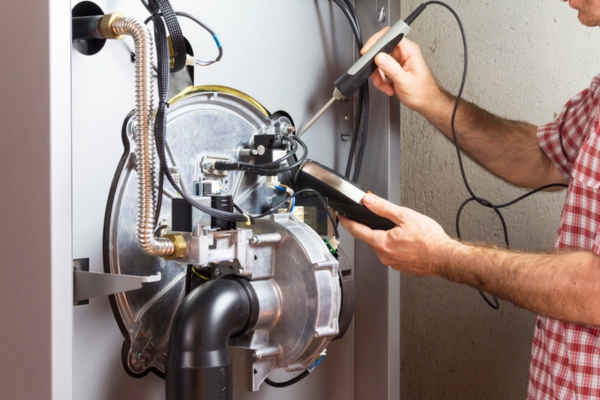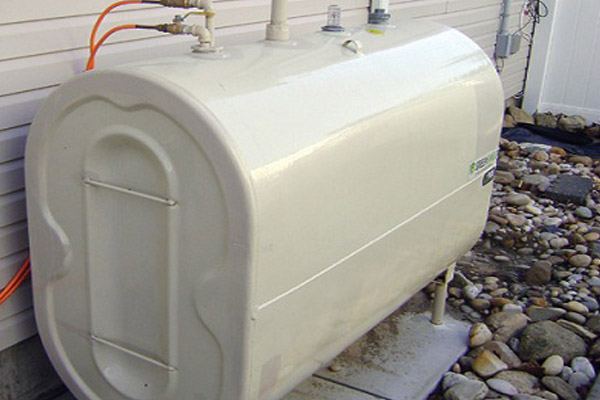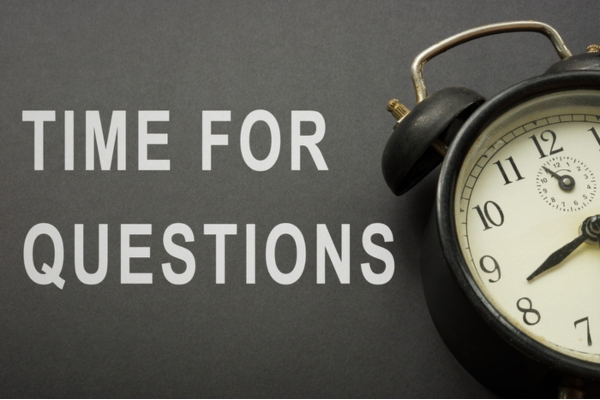Boost Your Heating System’s Performance with Regular Oil Filter Replacements

Heating expenses significantly impact household budgets, often accounting for about half of your monthly energy costs, more so than any other home appliance. Reducing energy bills starts with optimizing your heating system. This article from Hart Home Comfort will explore how enhancing your system’s efficiency, mainly through consistent heating oil filter replacements, can lead to noticeable savings. Here, you’ll discover all the essentials of adopting this cost-effective practice.
The Value of Routine Heating Oil Filter Changes
Table of Contents
- 1 The Value of Routine Heating Oil Filter Changes
- 2 Advantages of Regular Heating Oil Filter Replacement
- 3 Recommended Frequency for Changing the Heating Oil Filter
- 4 Identifying When to Replace Your Oil Filter
- 5 Steps to Replace a Heating Oil Filter
- 6 Guidelines for Replacing Your Heating Oil Filter
- 7 FAQs About Heating Oil Filter Replacement
- 7.1 Why Should You Monitor Your Heating System’s Performance After Changing the Filter?
- 7.2 What Are The Indicators That An Oil Filter Change Was Successful?
- 7.3 Do Regular Oil Filter Changes Affect My HVAC Warranty?
- 7.4 How Can Homeowners Select the Right Oil Filter for Their System?
- 7.5 What Steps Should Be Taken If Heating Problems Continue After Changing the Oil Filter?
- 8 Conclusion
- 9 Contact Hart Home Comfort for Trusted Heating Oil Delivery Services
Continue to learn more about the necessity of oil filter replacements and how they enhance your system’s efficiency, longevity, and operational costs.
Understanding the Heating Oil Filter

Every home equipped with fuel oil-powered appliances possesses a heating oil filter. This filter acts as a barrier, cleaning the fuel by removing impurities before it enters the burner. Its critical function prevents dirt and moisture from blocking the fuel nozzle and maintains the pump’s effectiveness. A functional filter is essential to avert system lockouts and avoid damage to your equipment.
Trust Hart Home Comfort to provide top-notch heating oil delivery, ensuring you never run out of warmth during the cold months. Schedule a delivery today!
Why Regular Heating Oil Filter Replacements are Crucial
Filters effectively trap dirt, but their success comes with a drawback. Over time, as more impurities accumulate, the filters become less porous, decreasing the oil’s flow rate until it halts entirely. Eventually, some trapped dirt might bypass the filter, leading to system clogs. To prevent these issues, replacing the oil filter regularly is essential. Understand that each new filter will undergo the same challenges, making repeated changes necessary for your heating system maintenance routine. Fortunately, changing filters is quick and straightforward, offering several benefits.
Advantages of Regular Heating Oil Filter Replacement

Consistently performing small tasks can lead to significant benefits over time. Replacing your heating oil filter might appear simple, yet experts agree it’s a crucial maintenance step for any oil boiler or furnace owner. The impact of regular filter replacement is substantial. Below are a few benefits you can expect from this routine maintenance:
Enhancing the Reliability of Your Heating Oil Equipment
For optimal performance, heating systems require a consistent flow of clean oil. Any obstruction, like a clogged filter, can reduce efficiency, leading to struggles in adequately heating your home. In the worst cases, it could result in a complete system failure, potentially leaving your family in the cold during winter. To avoid such scenarios, boost your system’s reliability with regular maintenance. Scheduling routine filter replacements ensures smooth operation.
Stay ahead of the cold with Hart Home Comfort’s prompt heating oil delivery, designed to keep your home warm and worry-free. Call us today!
Sustaining High Heating Efficiency
The efficiency ratings on your system’s label degrade over time as components wear and dirt accumulates, leading to a gradual decline in performance. Inefficient furnaces require more fuel to generate the same amount of heat, exacerbating environmental problems like high carbon emissions. To maintain peak efficiency, arranging for annual professional maintenance is crucial. During these visits, HVAC technicians can conduct comprehensive tune-ups. Additionally, adhere to the manufacturer’s recommended oil filter change schedule. These practices help keep your heating system operating efficiently, almost as if it were brand new.
Extending the Life of Your HVAC System

Using fresh oil filters is crucial for keeping your home heating system clean and efficient, which helps avoid hazardous clogs and reduces wear on individual components. This care extends the entire system’s life, enabling it to serve reliably for more than a decade. By preventing premature breakdowns, you avoid the costly need for early HVAC system replacement. Maintain your system regularly, save money, and enjoy optimal heating performance.
Saving Money Significantly
As previously mentioned, clean oil filters are crucial in reducing energy consumption. This benefits the environment by decreasing emissions and helps homeowners cut down on their energy expenses. This advantage is especially valuable during periods of uncertainty when fuel supplies might be limited, and prices are high. By maintaining clean filters, you can ensure your heating costs remain manageable year after year.
Let Hart Home Comfort take care of your heating needs with our trusted oil delivery service and HVAC services, which ensure a warm and comfortable home all season. Reach out to our office today!
Recommended Frequency for Changing the Heating Oil Filter
To guarantee optimal oil filtration, it is advisable to replace heating oil filters at least once a year, ideally before the start of the heating season. Monitor your system’s performance throughout the winter for any signs of reduced efficiency. If you notice filter clogs, consider increasing the replacement frequency to twice a year. Conducting a mid-season replacement can help prevent future issues and maintain steady system performance.
Identifying When to Replace Your Oil Filter

Here are some signs that it might be time for a replacement:
- Slow Starts and Unusual Noises: Being familiar with your furnace or boiler’s typical behavior can help you spot issues. If you notice slow starts or strange sounds, they could indicate a clogged filter, which hampers the system’s efficiency.
- Dark Smoke Emission: While light-colored smoke from the chimney is normal, dark smoke is a warning sign. This often means water and other contaminants are bypassing the oil filter. If it’s been a long time since your last filter change, moisture and debris may have accumulated, signaling it’s time for a replacement.
- Decreased Heating Performance: If your home feels chilly or adjusting the thermostat doesn’t increase the warmth, the oil filter might be dirty. This is also suggested if the system unexpectedly shuts off. The problem could be a clogged filter or another affected component nearby.
Steps to Replace a Heating Oil Filter
Changing your heating oil filter is straightforward and can significantly enhance your system’s efficiency. Here’s how to do it:
- Begin by switching off the power to ensure safety during maintenance.
- Place a drip pan beneath the filter to catch any escaping oil droplets.
- Shut off the valve on the heating oil tank to stop the oil flow.
- Detach the base from the oil filter canister.
- Extract the used cartridge and any old gaskets.
- Thoroughly clean the filter canister and the pump strainer before placing a new filter.
- Reconstruct the canister and securely reattach it.
- Turn the power back on and open the supply valve.
- Release trapped air by loosening the bleeder screw.
- Operate the oil burner to monitor its functionality.
- Check for any signs of oil leaks in the system.
- Conclude by properly disposing of the old filter if the system functions smoothly.
Guidelines for Replacing Your Heating Oil Filter

Here are some tips to guide you through the replacement process of your heating oil filter:
- Oil can irritate the skin, so it’s important to wear gloves to protect your hands and arms. An apron or similar protective clothing is also advisable to prevent oil stains on your clothes.
- Handle the canister carefully. Support it securely with your hand to avoid dropping it, which could damage the pipes.
- Track small components like washers and rings, which are crucial for the filter assembly, and ensure they are not misplaced.
- Be alert for leaks, as they may not appear immediately. Sometimes, leaks can take up to 48 hours to notice.
- Replacing an oil filter can be messy and potentially hazardous. If you feel unsure about performing this task safely, consider hiring a professional to assist you.
FAQs About Heating Oil Filter Replacement

Here’s a helpful guide to address some of the most common inquiries:
Why Should You Monitor Your Heating System’s Performance After Changing the Filter?
Keeping an eye on your heating system after installing a new filter is vital to quickly identify any decline in performance or odd behaviors. Early detection of these problems can prompt timely interventions, maintaining the system’s efficiency and reliability.
What Are The Indicators That An Oil Filter Change Was Successful?
After changing your oil filter, a successful change is indicated by improved heating performance, the absence of unusual noises or leaks, and the system achieving the desired temperature settings more efficiently.
Do Regular Oil Filter Changes Affect My HVAC Warranty?
Regular maintenance, such as changing oil filters, is often a requirement under many HVAC warranties. Neglecting these maintenance tasks can void your warranty, underscoring the importance of consistent system upkeep.
How Can Homeowners Select the Right Oil Filter for Their System?
To ensure the correct oil filter is used, homeowners should consult their heating system’s manufacturer guidelines for specific filter requirements or seek advice from a professional HVAC technician. Using the appropriate filter is essential for maintaining optimal system performance.
What Steps Should Be Taken If Heating Problems Continue After Changing the Oil Filter?
Should heating issues remain after replacing the oil filter, this could signal more complex problems within the system. It is recommended to arrange for a thorough diagnostic evaluation by a certified HVAC technician to pinpoint and remedy any deeper issues.
Conclusion
Heating oil filter replacements are essential for keeping your furnace running smoothly by preventing clogs, but their effectiveness is temporary. Regular replacements are crucial to ensure your heating system’s ongoing efficiency, reliability, and optimal performance. If you’re uncomfortable changing the filters yourself, don’t hesitate to hire a professional. This ensures a hassle-free replacement, allowing you to maintain a high-performing heating system easily.
Contact Hart Home Comfort for Trusted Heating Oil Delivery Services
Hart Home Comfort is committed to keeping homes and businesses in Nassau County, Suffolk County, and Queens, New York comfortably warm with our dependable heating oil delivery. We focus on fast, efficient service to ensure you enjoy uninterrupted warmth. Our dedication to excellence is reflected in our competitive pricing and transparent operations, always prioritizing your comfort.
Choosing Hart Home Comfort means partnering with a trusted name in heating oil supply. Known for our reliable service and customer satisfaction, we’re here to fulfill all your heating needs and keep your space warm and welcoming throughout the winter. Reach out to us today to learn more!
For any questions about what Hart Home Comfort can do for you, give us a call today. Click here to contact us now or call us at (631) 667-3200 to find out more! Click the link to view our service area.

Related Articles:
- Smooth Conversion: Integrating Bioheat® Fuel into Existing Heating Oil Systems
- What Is The Best Temperature To Set Your Heating Oil Boiler At?
- How Does An Oil Heating System Work?
- New Efficient Oil Heating Systems Increase Comfort And Decrease Fuel Use
- Effective Ways To Maintain Your Hydronic Heating System
- Heating System Repair Vs. Replace: Which Option Is Best?
